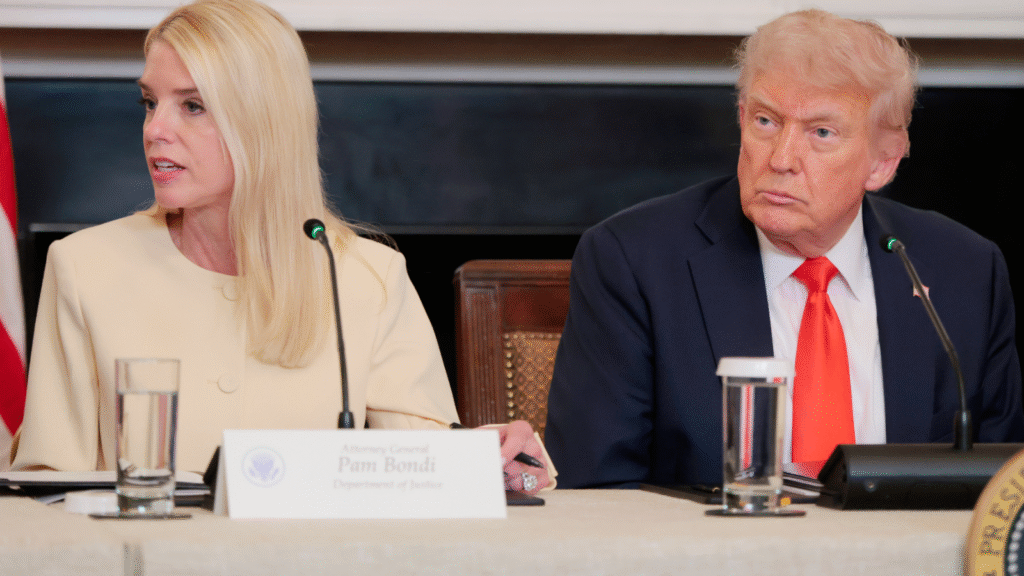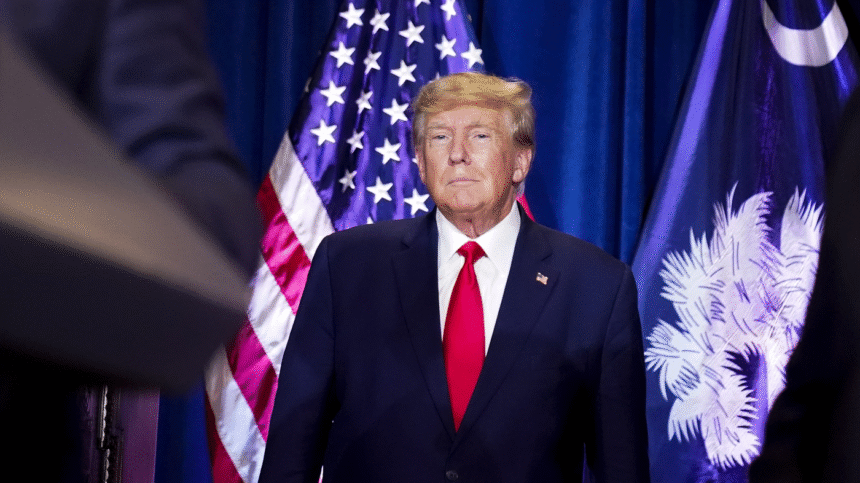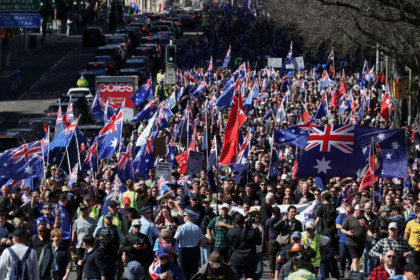Trump Orders Release of Epstein Grand Jury Transcripts — 17 Years of Secrets, 1 Explosive Move, Thousands of Pages Unsealed
Donald Trump orders release of Epstein grand jury transcripts — 17 years of secrets, 3,000+ pages, and global elites on edge. Here’s what to expect from this explosive move
Washington, D.C. — In a seismic political development that has stirred global headlines and reignited calls for justice, former U.S. President Donald J. Trump has ordered the release of sealed grand jury transcripts related to the late convicted sex offender Jeffrey Epstein. With more than 3,000 pages of previously confidential documents now slated for public scrutiny, this unprecedented decision threatens to pull the curtain back on nearly 17 years of hidden testimonies, confidential settlements, and potentially explosive revelations involving the world’s elite.

The move, while hailed by Trump’s supporters as a crusade for transparency and justice, has also triggered legal controversy and political backlash. Powerful names from politics, entertainment, tech, and royalty now find themselves under renewed scrutiny, as public attention shifts back to the complex, murky saga of Epstein’s sprawling criminal enterprise — and those who may have shielded it.
Jeffrey Epstein, a financier and convicted sex offender, was arrested in July 2019 on federal charges of sex trafficking minors in Florida and New York. His connections spanned presidents, billionaires, Ivy League academics, and global royalty. His mysterious death in August 2019 — ruled a suicide by hanging — inside a federal detention center added fuel to rampant speculation that his demise was part of a larger cover-up.
Epstein’s first brush with law enforcement came in 2006, when over 30 underage victims came forward with allegations of sexual abuse. Despite overwhelming evidence, Epstein secured a highly controversial non-prosecution agreement (NPA) in 2008, which saw him serve just 13 months in county jail, with a daily work-release privilege.
Now, for the first time, the grand jury testimonies and associated legal documentation from those early investigations and subsequent federal inquiries will be made public — including records that legal analysts say may reveal how Epstein leveraged wealth, influence, and blackmail to protect himself and his inner circle.
On July 17, 2025, Trump took to Truth Social, declaring:
“The American people deserve to know the truth about one of the biggest scandals in history. No more hiding. No more sealed files. Full transparency — now.”
According to official sources close to Trump’s legal team, the order requests immediate declassification and phased public release of grand jury testimonies from 2006, 2009, 2018, and 2019, as well as associated plea negotiations and evidence transcripts held by the Department of Justice (DOJ) and FBI.
Critics argue the timing — less than 16 months before the 2026 midterms and during a media lull — is politically calculated. But Trump’s allies counter that this is the “people’s right to know” in action.

A Trump campaign spokesperson stated:
“This is about justice for victims and exposing the rot at the highest levels. President Trump is doing what the DOJ has refused to do for years.”
Based on legal leaks and early analysis, the released materials are expected to include:
- Testimonies from over 45 Epstein accusers
- Statements from staff at Epstein’s properties in Florida, New York, New Mexico, and the Virgin Islands
- Financial and travel records
- Communication logs with names of frequent visitors
- Details of Epstein’s blackmail strategies involving hidden cameras and audio surveillance
- Plea deal discussions involving federal prosecutors
Of particular interest are records from the 2008 plea deal, where Epstein’s legal team negotiated immunity for “potential co-conspirators.” Analysts suggest that this immunity clause could have protected powerful individuals with ties to Epstein — and those names may now be exposed.
Even before the unsealing, several prominent individuals had been linked to Epstein, including:
- Prince Andrew of the British Royal Family
- Harvard law professor Alan Dershowitz
- Bill Gates, billionaire tech mogul
- Former President Bill Clinton, who flew on Epstein’s private jet multiple times
- Les Wexner, founder of L Brands (Victoria’s Secret)
- Jean-Luc Brunel, a modeling agent with ties to Epstein’s trafficking network
While most of these figures have denied any wrongdoing or criminal involvement, the release of verbatim testimony may paint a different picture — or at the very least, raise new questions.
The Department of Justice has acknowledged receipt of Trump’s declassification directive and has stated that it is reviewing “potential implications to ongoing investigations and privacy protections for victims.”
Several attorneys for unnamed individuals referenced in sealed materials have already filed emergency motions to block or redact portions of the transcript, citing risks to reputation, privacy violations, and prejudice in unrelated cases.
Meanwhile, civil rights groups and victim advocacy organizations have welcomed the move. Survivor Virginia Giuffre, one of the most vocal accusers, said in a statement:
“We’ve waited for this day for nearly two decades. If these transcripts show how Epstein’s power protected him, the world deserves to know.”
Within hours of Trump’s announcement, hashtags like #EpsteinFilesUnsealed, #TrumpReleasesTruth, and #WhoWasOnTheList began trending across social media platforms, racking up over 200 million impressions on X and TikTok combined.
International media, particularly in the UK, have ramped up coverage in anticipation of possible new details involving Prince Andrew and other figures with diplomatic immunity or unresolved allegations.
Experts warn of a coming media storm, particularly as newsrooms dig into names, dates, and associations contained in the released records.
Sources within the Trump legal team say the release will occur in three phases:
- Phase 1 (Within 14 Days) – ~1,200 pages from 2006–2008 proceedings
- Phase 2 (Next 30 Days) – ~1,000 pages from 2018–2019 federal testimony
- Phase 3 (By September 2025) – Remaining files, including FBI interviews, plea deals, and sealed exhibits
The documents will reportedly be hosted on a public domain server in coordination with independent media watchdog groups and justice department oversight panels.








